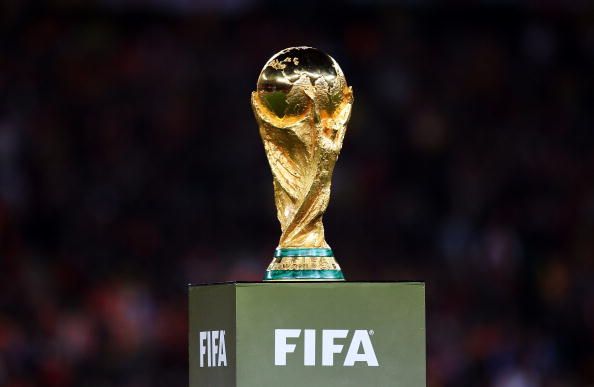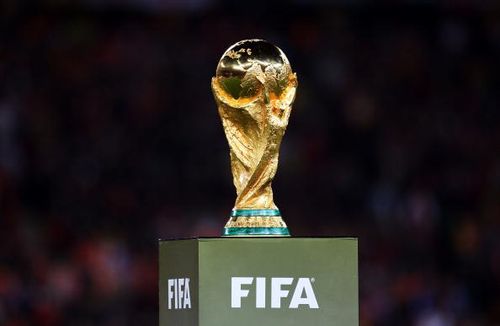
FIFA World Rankings explained: Why the system is flawed

The World Cup seedings brought with it massive debate. In an attempt to keep the top eight teams in the world out of each others’ groups during the main event in Brazil next year, FIFA used its own ranking system to design its eight top seeds.
Among the many to be ousted from those elite seeds were Italy and England, while Switzerland managed to make the top of the pile. Wait, what?
This is the same Switzerland that crashed out of the group stages of the 2010 World Cup, did not even make the 2012 European Championships, and were part of arguably the weakest group in UEFA’s World Cup qualifying campaign which saw lowly Iceland finish second behind them and earn a play-off spot.
In comparison, Italy won the World Cup in 2006, reached the finals of the 2012 European Championships, and were unbeaten in their qualifying campaign for the 2014 World Cup despite being pitted against much-tougher opponents.

So are Switzerland really better than Italy? Or is FIFA’s ranking system flawed? What is FIFA’s ranking system anyway. Let’s find out:
The basic formula FIFA uses is:
Points = M (points for match result) * I (importance of match) * T (strength of opponent) * C (strength of confederation)
Now we look at each of the four sections in detail:
M (points for match result)
Every team gets 3 points for a win in any official match, may it be a tournament or a friendly, 1 point for a draw and 0 points for a loss.
I (importance of match)
Now here is where FIFA prioritises matches based on their relevance. The different divisions and the points given to each are:
Friendly game: 1.0
World Cup qualifier: 2.5
Confederation’s Cup or confederation-level competition (like the Euro): 3.0
World Cup game: 4.0
T (strength of opponent)
The strength of your opponent is rated as 200 minus the opposition team’s rank when the match takes place. Hence, if you played Spain, your T would be 200 – 1 = 199. Therefore, a win against Spain would prove very fruitful.
However, there is a minimum 50 points that could be gained, even if you played 207th ranked San Marino.
C (strength of confederation)
FIFA determines the strength of a confederation by giving each a value.
Europe/South America: 1.0
North/Central America: 0.88
Asia/Africa: 0.86
Oceania: 0.85
So if 2 European countries play against each other, then each get 1 point. If a European team plays an Asian team, then the mean is taken to assign points to both teams ((1.0 + 0.86) / 2 = 0.93)
Now, the total ranking considers games played in the last four years. However, more recent games are given more of an importance.
Four years ago: 20% weight
Three years ago: 30% weight
Two years ago: 50% weight
Current year: 100% weight
This is how FIFA derives ranks for each country.
However, despite their detailed process, they have missed out some key elements that would have made the system fairer.
A team gets no points for any loss, the ranking doesn’t consider margins of victories, and home-team advantage isn’t given consideration either. Therefore, a 1-0 loss for England against Spain at the Santiago Bernabeu, which many would see as a good, fighting result, would give the Three Lions the same points as a 5-0 loss against Sweden at the Wembley Stadium.
Points awarded for the strength of a confederation means that France would get more points for beating the Faroe Islands than they would for beating Japan, Ivory Coast or the US.
So how did the system affect Italy and benefit Switzerland? In more ways than one:
1) Italy qualified for the World Cup with two games to spare, and therefore played second-string teams in their last two games against Denmark and Albania to give their fringe players more experience, drawing both games.
Switzerland, on the other hand, won their last three qualifiers against Norway, Albania and Slovenia, and an unbeaten run in their last 14 games against mostly weaker teams helped them accumulate the points. With the strength of opponent (T) statistic giving only a modest difference, Switzerland’s easy qualifying group helped them immensely.
2) Friendlies are not always a right indication of how well a team is playing, and the bigger teams, who play more friendlies, are likely to suffer because of that. Italy played five friendlies this year, drawing against Netherlands and Brazil, and losing to Argentina.
Similarly, Italy lost points for losses against Brazil and Spain in the Confederations Cup, additionally spoiling the relative effect of their wins, that now gave them lesser points.
Switzerland, conversely, played two friendlies, against Greece and Brazil, and while it has to be accepted that they impressed in a 1-0 win over the World Cup hosts, the lesser number helped give more value to the matches they won in qualifying.

Another team that has suffered because of the strength of competition statistic is Brazil. Since they are the hosts of the competition, they have not had to play qualifying and have only played friendlies. They have won 11 of their last 12 matches, beating the likes of Spain, France, Mexico, Italy, Uruguay and Portugal, and yet are not ranked in the world’s top 10.
The conclusion
FIFA have tried hard to bring a fairness and transparency into their rankings system, but have failed to cover all their bases, overlooking some major flaws in the system.
The hope is that these flaws will be ironed out in the future, so as to not affect the teams that deserve to stand on top of world football’s standings.